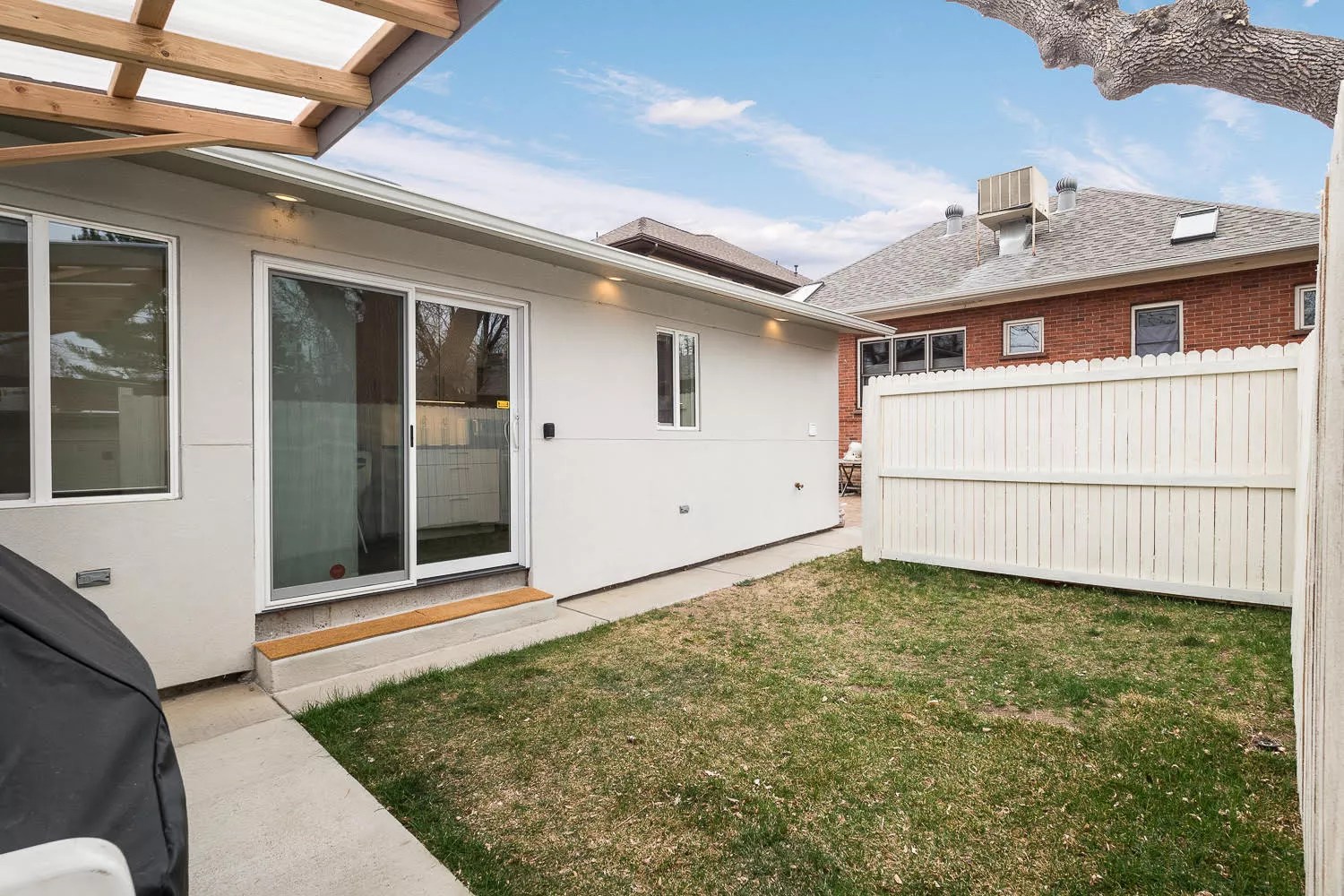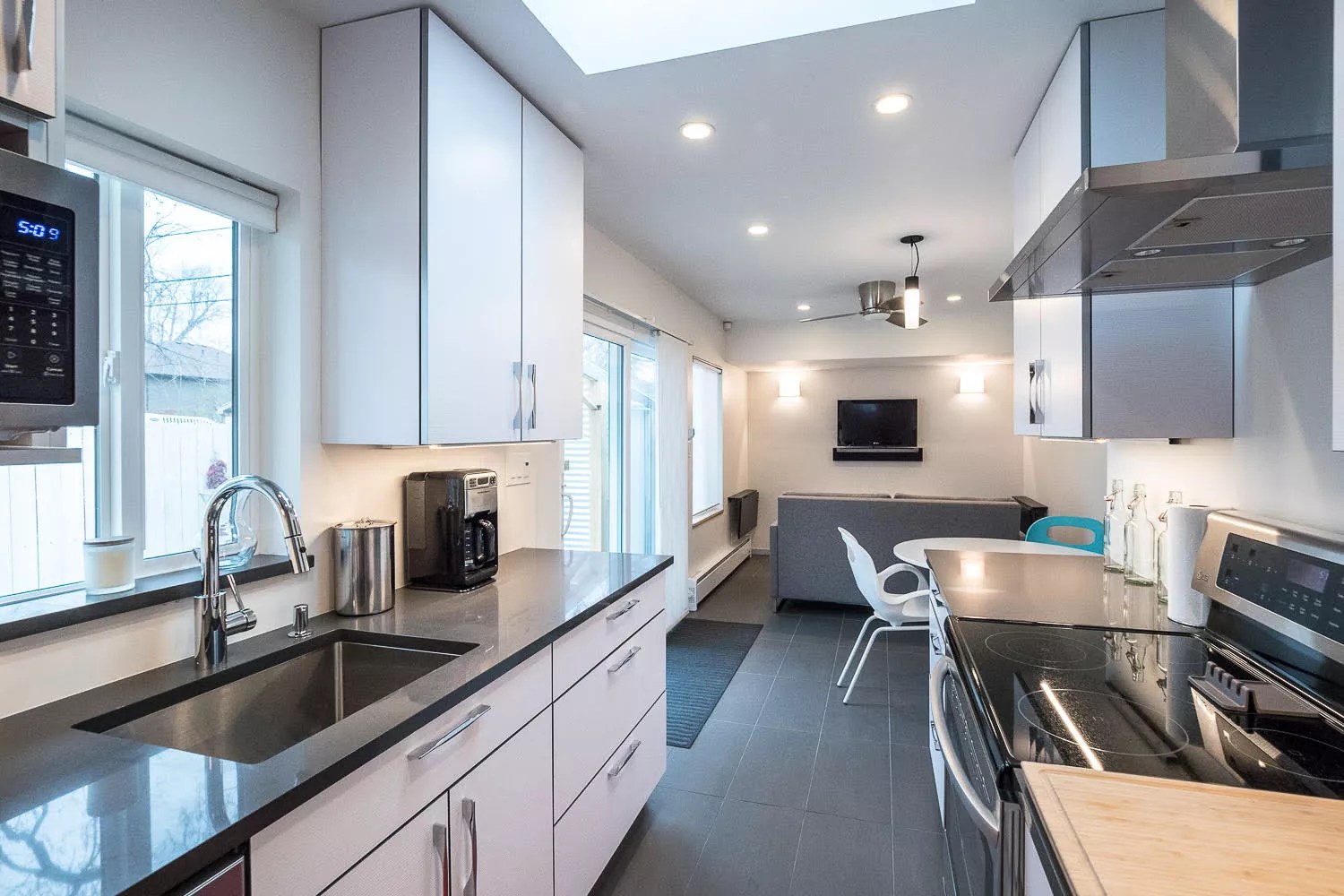
Steve Ramsey

Audio By Carbonatix
As he prepared for a hearing to contest the denial of his short-term rental license renewal application, Whit Allen received a threatening-looking email from the Prosecution and Code Enforcement Section|City Attorney’s Office. Opening it, he found that the city had somehow obtained photos of his wedding, which it planned to use as evidence in the upcoming legal proceeding.
Allen felt “traumatized” by the city’s probe into his personal life, he says.
Denver’s Department of Excise & Licenses regulates the city’s STR market and tries to crack down on investment groups and individuals who violate Denver’s rules regarding short-term rentals, which are designed to protect neighborhoods and prevent real estate speculators from driving up housing prices by limiting stock. But Allen and other hosts say that property owners who obey the rules have been caught up in the city’s overly aggressive enforcement and have lost income they relied on as a result.
One host, who asked to remain anonymous for fear of retaliation while her case is pending, says that she and her husband had been using money generated by their STR to pay for in vitro fertilization after a series of miscarriages. But they had to hire a lawyer during their lengthy and expensive appeal process with the city, she notes, and she’s now aging past the window of viability for the IV procedure. “Basically, we just won’t be able to do that anymore,” she says.
She and her husband operated an STR in an accessory dwelling unit (ADU) behind their house, which is allowed by the city, but they got shut down after Excise & Licenses brought up a series of issues involving confusing regulations around ADUs and Complete and Independent Dwelling Units (CIDU).
The woman says the department initially claimed she was violating the primary residence rule, which she proved was not true. Then Excise & Licenses took issue with the fact that a long-term renter in the basement unit of the couple’s property was occasionally using that unit as an STR – even though multiple STRs are allowed on a single property as long as the host of the unit being used as the STR is its primary resident (in this case, the downstairs tenant). After that, the city switched gears and claimed that the couple’s ADU is illegally zoned.
According to a 2019 Denver zoning code memorandum, “If the applicant maintains the primary dwelling unit as their primary residence, they may operate an STR use in an attached or detached ADU.” But that memo also says, “If the applicant makes their primary residence in the primary dwelling unit, they may operate an STR use in a detached accessory structure that does not contain a Complete and Independent Dwelling Unit.”
The host says that that memo referencing CIDUs forms the basis of the department’s case against the couple, but she’s not sure how it applies to the couple – and she has been unable to get a clear answer from the city.
That may be because the city doesn’t have an official definition for a “complete and independent dwelling unit.”
Laura Swartz, communications director for Denver’s Community Planning & Development department, says that “broadly speaking, a ‘CIDU’ is not a defined term in Denver’s zoning code. It stands for a ‘complete and independent dwelling unit,’ which can sometimes be the same as an ADU, but is not always allowed by a property’s zoning.”
According to the host who got smacked for an ADU that was really a CIDU, the unit was legal when it was built and zoned as an ADU. That was before 2019, and she says that even though it would no longer be legal to build the unit based on new zoning rules, those rules should not apply retroactively.
In order to prevent large investment companies and speculators from buying up significant portions of the city’s limited housing supply and using them as money-generating STRs, since 2016 Denver has mandated that all properties used for STRs be the host’s primary residence. Prior to that, Denver did not permit STRs in residential zones at all.
“The last thing we want is for the cost of living in Denver to rise even more because of investors coming in and buying up properties to rent them out as short-term rentals,” says Excise & Licenses spokesperson Eric Escudero. “The good news is, the regulations are working.”
According to an Excise & Licenses report, the city had issued 2,689 STR licenses as of January; the licenses must be renewed annually, and 93 percent are approved. Most applications go smoothly, Escudero says, “except if our investigators find a reason to believe that it may not be their primary residence.”
But a group of STR hosts say that their renewal applications have been challenged despite their being in compliance with the city’s primary-residence rules.
“I am not the ‘bad guy investor’ that Denver’s STR regulations are meant to prevent from buying up all of Denver’s housing stock,” Allen insisted during his March 24 appeal. “I only own my one home, it is my primary residence, and it is just around the corner from my office.”
Steve Ramsey, a member of the group who has an ADU behind his home in Platt Park, lost his license because the city says he violated the rules. “In 2019, Denver Excise & Licenses decided to change their rules with respect to what they consider someone’s primary residence,” Ramsey says. “In the process of that, they started arbitrarily stating that one of the conditions that they thought was legitimate was the number of nights that an STR was rented out.”
A year ago, the department asked Ramsey to supply a calendar showing the number of nights he rented his STR. After Ramsey complied, he says, the department told him it would get back to him in the next seven to ten days. “Well, this was in early March,” he recalls. “Never ever, ever, ever, ever heard another response from them in any way, form or fashion, and then in mid-January, I got an email saying ‘Your short-term rental license has been permanently revoked.’ Zero explanation.”
While there is no limit on the number of nights an ADU can be rented out as an STR, Ramsey had also sometimes rented out his primary residence at the same time – which he didn’t realize was against city policy.
He told the STR host Facebook group what had happened with his permit. In response, “I just got this flood of responses from people, explaining all these incredibly, unbelievably egregious things,” Ramsey says.
In subsequent conversations, a pattern emerged: Although Excise & Licenses puts no specific limit on the number of nights a host can rent out an STR, the department has been denying STR permit renewal applications for anyone who rents out their primary residence for more than half the year. This is a major issue for hosts who say they’re out of town more than half the year – for work, to attend to sick family members or for other reasons – but still consider Denver their primary residence.
Denver’s ordinance code defines a primary residence as “the place in which a person’s habitation is fixed for the term of the license and is the person’s usual place of return. A person can have only one (1) primary residence.”
According to Alex Dodd, a onetime host who lost his STR license, Excise & Licenses at one point proposed a 183-day limit on the number of nights a host could rent out an STR. After pushback from the host community, he says, the department opted to add “language about the number of nights a home is rented as a factor for determining the primary residency – without specifically stating if there was a cap or a specific number of nights.”
Despite that, some hosts think the department is still using the 183-day requirement. “They won’t say that’s a hard and fast rule,” says Dodd, “but it’s definitely a factor.”
“There is no 183-day law, and our investigators are not implementing it,” counters Escudero, adding that “whether and how often the applicant returns to the short-term rental or resides at any other location within a calendar year…and whether the amount of time that the short-term rental has been, or will be, rented within the calendar year” are two of seven factors for determining primary residency.

Steve Ramsey was using his ADU for retirement income.
Steve Ramsey
While his previous STR host license is gone (according to the city, it was not revoked, just not renewed), Ramsey stays in touch with other hosts. And he began the application process for a new STR license on April 6.
Although Allen’s case is still pending, his hearing officer has recommended that his license be denied; Excise & Licenses director Molly Duplechian will have the final say.
“Their basis is that because I rented 75 percent of the nights, I am residing somewhere else more often than not and that my residence, therefore, is not fixed,” he says. “While all of that sounds to me like 50 percent is the threshold, they went on further to state that I could have returned to my place more than 50 percent of the nights, but they would still have denied me because it is obvious to them that I exhibit ‘nomadic habitation.'”
The city’s evidence? His wedding took place in Italy.